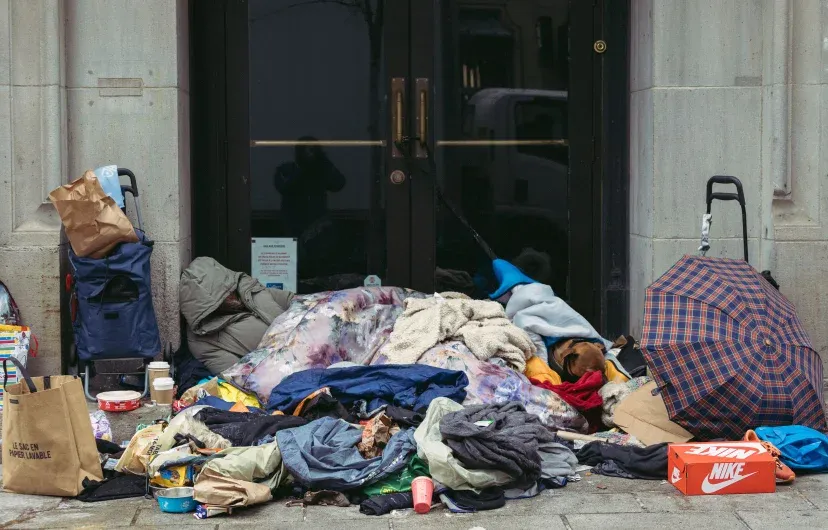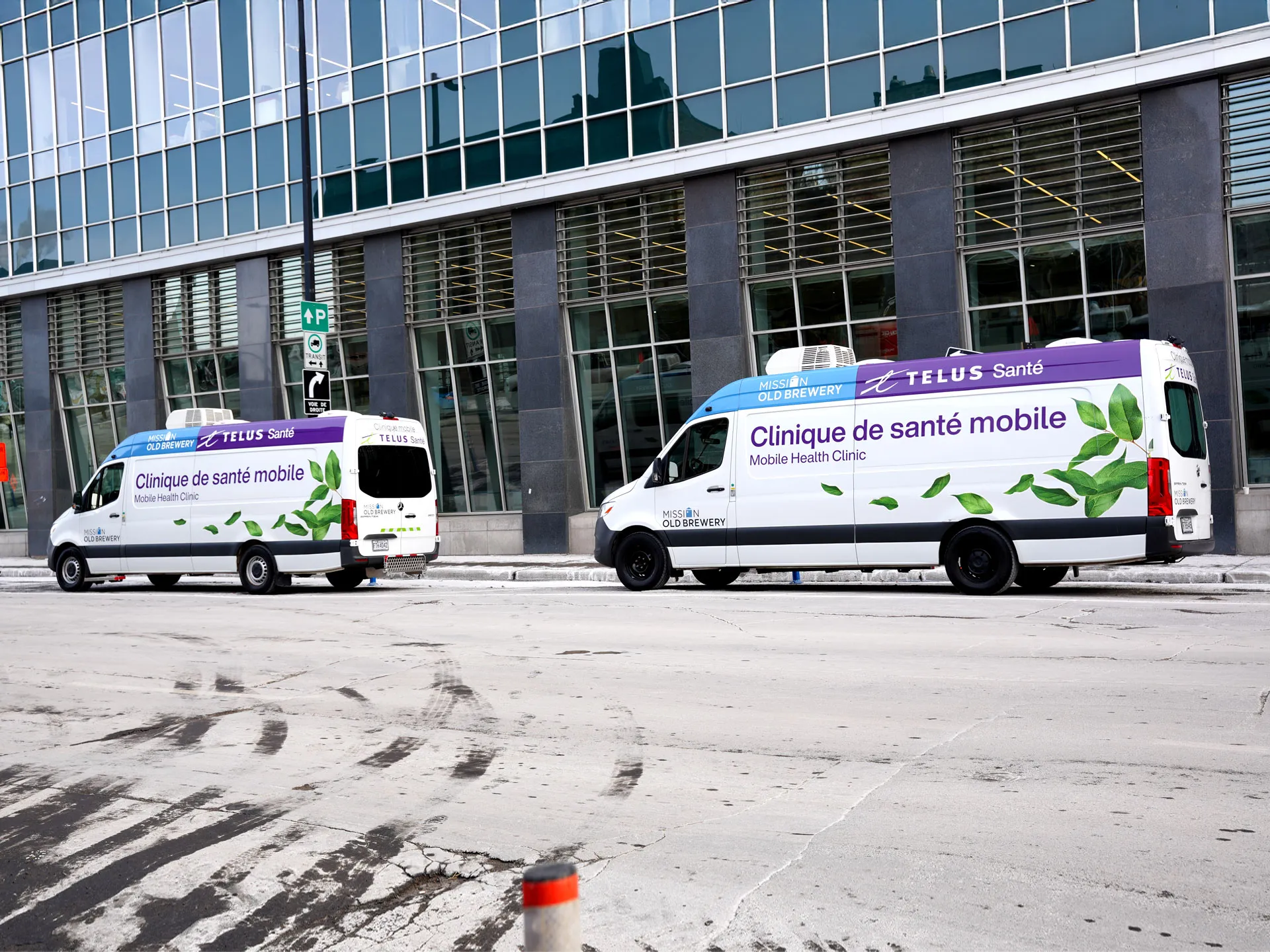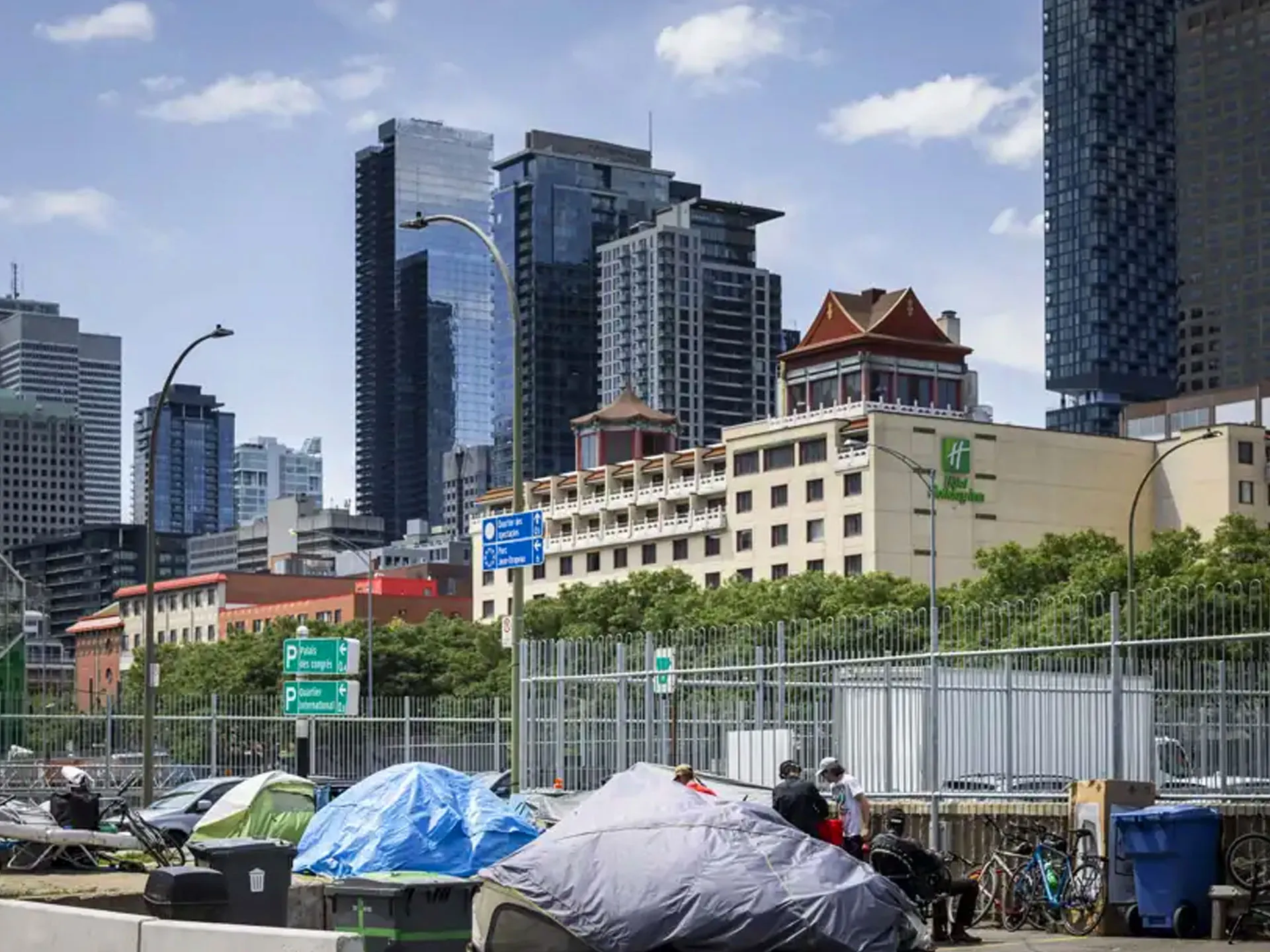
A roadmap to break the cycle of homelessness and promote coexistence

Photo by Valérian Mazataud / Le Devoir
The current scale of the homelessness crisis in Montreal is unprecedented. More and more people are finding themselves without a home, creating widespread insecurity and untold suffering. At the same time, tensions caused by the presence of unhoused people in public spaces are rising.
A year ago, the City of Montreal mandated the Office de consultation publique de Montréal (OCPM) to conduct a public consultation on coexistence between local residents and people experiencing homelessness, and the integration of facilities for unhoused people into Montreal neighbourhoods. After 10 months and input from thousands of people, the OCPM has released a comprehensive and important report containing immediately actionable recommendations for authorities and the public. The Old Brewery Mission, which is on the front lines of the crisis on a daily basis, fully agrees with the OCPM’s findings and recommendations. They accurately reflect the conditions we are seeing on the ground.
To begin with, the OCPM notes a crucial fact: people experiencing homelessness in Montreal are citizens just like everyone else. They have the same rights, including the right to live in the city safely and with dignity. The city must change its approach by making public spaces more inclusive and providing basic services accessible to all (public toilets, waste collection, access to drinking water, secure storage facilities).
The OCPM also points out that dismantling encampments without providing alternatives exposes these vulnerable people to still greater insecurity and is liable to exacerbate the challenges of coexistence. Tearing down encampments only moves homelessness down the road. This conclusion echoes the report released in January by a City of Montreal committee of experts that examined the issue of encampments.
The OCPM goes on to explain that without clarifying the roles and responsibilities of the three levels of government, and without better governance and strong leadership, we will not be able to resolve the homelessness problem and, by extension, the challenges of coexistence. The key to success is seamless collaboration among stakeholders.
Another critical issue is the chronic underfunding of community organizations. Given the growing needs related to homelessness, significantly increased funding and an overhaul of funding programs are essential to resolve the crisis. The three levels of government must make housing a priority and urgently allocate adequate funds to build a continuum of affordable housing. Finally, the government’s approach to homelessness must prioritize prevention. It costs much less to keep people from becoming homeless in the first place than to address the problem once they are on the street.
The problems may seem overwhelming but solutions do exist and they are well known. It is now up to public authorities to build on the work done by the OCPM and make the homelessness crisis an absolute priority. There is wide public support for this view.
As OCPM Chair Ariane Émond puts it, “the intolerance of some towards people experiencing homelessness could become general intolerance of homelessness itself and open the door to reducing homelessness and the challenges of coexistence that it creates.”
Society as a whole would benefit.
William Hodgson
Senior Advisor, Public Affairs and Government Relations, Old Brewery Mission
Dernières nouvelles
-
 Meet Jacinthe Corbin, Director of Housing Support Services
Meet Jacinthe Corbin, Director of Housing Support Services -
 The Old Brewery Mission and TELUS Health for Good launch second mobile
The Old Brewery Mission and TELUS Health for Good launch second mobile -
 Homelessness in the downtown core: We must house, care and innovate
Homelessness in the downtown core: We must house, care and innovate -
 Meet Jean-François Dagenais, Vice President of Finance, IT and Facilities
Meet Jean-François Dagenais, Vice President of Finance, IT and Facilities -
 Old Brewery Mission unveils new employer brand
Old Brewery Mission unveils new employer brand - See all news